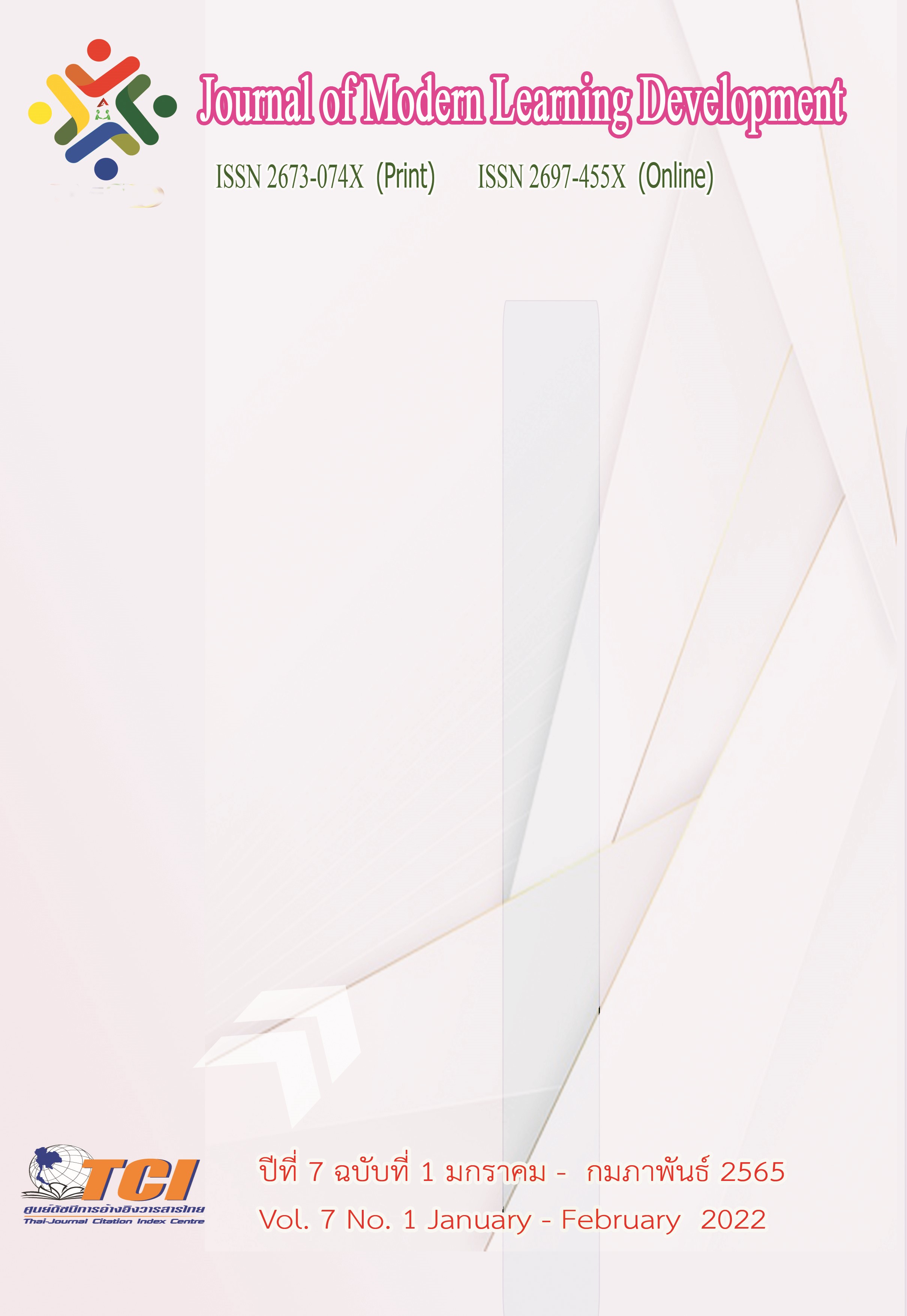The Strategies of School Management to Enhance The Moral School Model
Main Article Content
Abstract
This research aimed to (1) develop strategies of school management to enhance the moral school model, (2) affirm strategies of school management to enhance the moral school model. This research applied mixed-method paradigm which combined quantitative and qualitative research. The questionnaire was used as the research instrument. The participants were 480 stakeholders including administrators, project-head teachers, and general teachers from 136 schools of 3-star moral schools that were qualified to become 4 stars moral schools.
A result of this study was found in the following aspects.
1) The strategies of school management to enhance the moral school model consisting of 5 mains strategies which were 1) impelling processes of morality development in schools, 2) propelling the participation of all related stakeholders in morality development (school administrators, teachers, students, educational officer, parents and community), 3) reinforcing knowledge and innovation to enhance morality and ethics in school, 4) developing school learning resources, 5) enhancing the strategies of school management. The model with 8 minor strategies and 34 methods. The result of the strategies evaluation was in the highest level.
2) The affirmation/certification of the school management strategies found that the school management strategies to enhance moral school consisted of 5 major strategies and 8 minor strategies with 34 methods. Overall, the correctness, appropriateness, and usefulness were in the highest level. According to the results from mean score (M) and standard deviation (S.D), it is found that the results were similar to the 7 experts’ opinion, which mostly rating in 4 and 5 level. As a result, the opinions of the experts were committed to school management strategies to enhance moral school model with correctness, appropriateness, and usefulness in order to apply the strategies in school management. In order to implement the strategies in practice, school administrators ought to display behavior as a model, have the effective communication and staff improvement system and monitor them regularly.
Article Details
References
กระทรวงศึกษาธิการ. (2551). หลักสูตรแกนกลางการศึกษาขั้นพื้นฐาน 2551. กรุงเทพมหานคร: คุรุสภาลาดพร้าว
คำตัน วิชัยคำจร กิทธินส์. (2555). กลยุทธ์การบริหารการเปลี่ยนแปลงเพื่อส่งเสริมคุณธรรมของนักเรียนระดับมัธยมศึกษา. วิทยานิพนธ์ดุษฎีบัณฑิต สาขาการบริหารการศึกษา. บัณฑิตวิทยาลัย: จุฬาลงกรณ์มหาวิทยาลัย.
คณะกรรมการการศึกษาขั้นพื้นฐาน. (2562). ประกาศสำนักงานคณะกรรมการการศึกษาขั้นพื้นฐาน เรื่อง ประกาศรายชื่อโรงเรียนที่มีคุณสมบัติเข้ารับการพิจารณายกระดับคุณภาพโรงเรียนคุณธรรม สพฐ. ระดับ 4 ดาว. กรุงเทพมหานคร.
นิเวศน์ วงศ์สุวรรณ. (2560). การบริหารแบบมีส่วนร่วม. วารสารมหาจุฬาวิชาการ. 4 (1), 176-187.
วันชัย โกลละสุต. (2560). การบริหารแบบมีส่วนร่วม. ออนไลน์. สืบค้นเมื่อ 5 สิงหาคม 2562. แหล่งที่มา: http://kmcenter.rid.go.th/kmc08/km_53/km_team53.htm.
สุวิมล ว่องวาณิช. (2550). การวิจัยประเมินความต้องการจําเป็น. กรุงเทพมหานคร: สํานักพิมพ์แห่งจุฬาลงกรณ์ มหาวิทยาลัย.
สำนักวิชาการและมาตรฐานการศึกษา. (2552). เอกสารประกอบหลักสูตรแกนกลางการศึกษาขั้นพื้นฐาน พุทธศักราช 2551: แนวปฏิบัติการวัดและประเมินผลการเรียนรู้. กรุงเทพมหานคร: ชุมนุมสหกรณ์การเกษตรแห่งประเทศไทย.
สำนักงานปฏิรูปการศึกษา. (2545). แนวทางการบริหารและการจัดการศึกษาในเขตพื้นที่การศึกษาและสถานศึกษา. กรุงเทพมหานคร: สำนักงานปฏิรูปการศึกษา.
ศูนย์โรงเรียนคุณธรรม มูลนิธิยุวสถิรคุณ. (2560). กระบวนการพัฒนาโรงเรียนคุณธรรมทำอย่างไรให้ประสบความสำเร็จ. กรุงเทพมหานคร: สหมิตรพริ้นติ้งแอนด์พับลิสชิ่ง
Argyris, C. (1964). Interpersonal competence and organizational effectiveness. Homewood: Irwin - Dorsey.


